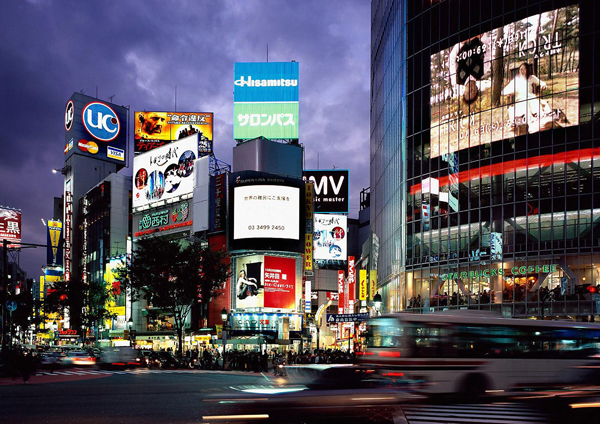How often have you read that Tokyo is the most expensive city in the world? How often did you believe it? Did you care?
Mercer’s annual Worldwide Cost of Living survey, released today, puts Tokyo at the top of the list. Where is second? Well, last year’s leader, Luanda, of course. (It’s the Angolan capital.)
Clearly there is a formula at work here. Mercer takes New York as its “base”, works in US dollars, and “measures the comparative cost” of over 200 items across the fields of transport, clothing, food, household goods, entertainment and, of course – here is perhaps what skews it for Tokyo – housing.
Bloomberg reports some stand out figures which may highlight some of the problems with the headline on the data: blue jeans cost $174 in Luanda and, in Moscow, you will pay $9.60 for an international paper. The price of coffee in Tokyo is reported to be $8.15.
For many expats, these figures might feel like added insult to the injuries our wallets take on the streets of Tokyo but, for some, there is a different philosophy. The survey is designed, say Mercer, “to help multinational companies and governments determine compensation allowances for their expatriate employees.” We should not get carried away with worry about how we are going to afford that next cappuccino!
I have never bought a coffee in Tokyo in US dollars. I pay in yen. While the figures may reflect true value for those people who earn abroad and spend in Japan, others of us may like to discard them – these surveys always provide a nice headline (see above!), but are they really that useful for most people?
Figures show that a luxury two bedroom apartment in Tokyo averages out at $4,766 per month. Some people are lucky enough to afford such a place but many of us will accept that a change of lifestyle is needed when living here. If you compare what you could afford in your home town, even if that is a different city in Japan (Osaka happens to be third on the list), of course you will pay more in Tokyo. But if you are willing to downsize, there are, if only slightly, cheaper alternatives.
The market for imported household goods and snacks is strong, as people clamor for their little reminders of home or snacks that they cannot do without but, again, there are alternatives.
What the survey’s raw data does not transmit is the opportunity to save money by, to a certain extent, going native. Consider items from the US or Europe as luxuries, and life may be easier. Go have some yakitori in a local restaurant instead of that American hamburger, swap French bread for Japanese rice sometimes (perhaps stick to the occasional croissant, though!) and, perhaps, you might eschew the expat hangout in favour of a local bar. Get involved in Tokyo!
Of course, for some people there is no option but to consider aspects of living in Japan which are undeniably world leading in cost. International schooling, for example, is a necessity, some would say, for those who wish their kids to integrate easily without the need to immerse themselves in a new language – particularly useful for those with parents who move on often due to work. Averaging at around two million yen a year – about 25,000 dollars – it is no mean expense.
We should love this great city and all that comes with it. Sometimes life can be hard, and financially there is no doubt there are strains for everyone, expat or otherwise, but remember all the wonderful opportunities living here provides us. It’s worth it! Anyway, you could always move to Karachi; the Pakistani city is at the “bottom” of the list and has a cost of living less than a third of that of Tokyo.









